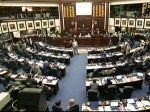 By: Chase Howard
By: Chase Howard
After more than a year of debate, edits, tabling and lobbying, the Florida Legislature passed multiple bills that would allow advanced practice registered nurses (APRN) to practice independently of physicians, as well as authorize certain pharmacists to test and treat patients for the flu and strep throat, among other conditions.
Prior to passage of these bills, APRNs were required to have some level of physician supervision in order to practice. While in many cases direct supervision is not required, Florida law required that an APRN enter into a supervisory relationship with a Florida licensed physician. Specifically, the providers must draft written protocols regarding scope of practice, as well as provide certain notices to their governing boards and patients. While the requirements vary based on the type of practice, they aren’t difficult to comply with in most cases. Finding a supervising physician outside of that physician’s primary practice, however, might prove to be more difficult than it seems. The requirements also carry certain mileage restrictions, prohibiting supervision outside mile limits based on the level and type of supervision.






